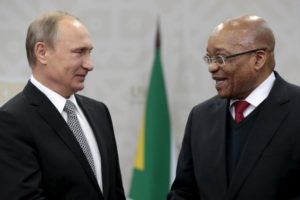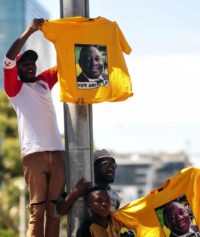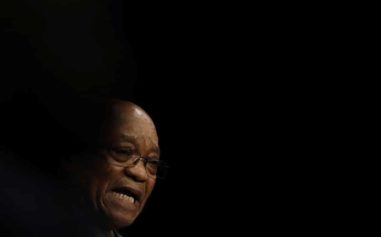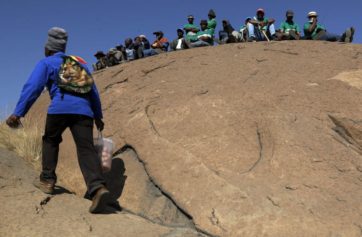From 1961 to 1992, one of Moscow’s most prestigious schools bore the name of Patrice Lumumba, the Soviet-supported Congolese independence leader brutally executed in 1961.
Patrice Lumumba University recruited and educated generations of foreign leaders, especially African leaders, and was just one of the many ways in which the Soviet Union cultivated ties with Africa.
Then, with the fall of the Soviet Union, after years of pouring money, arms and manpower into left-leaning anti-colonial movements, Russia’s presence in Africa, and Lumumba University, nearly disappeared overnight.
But today, two decades later, Russia is once again working to establish a foothold on the continent.
Russia’s interests in Africa are manifold. As economic sanctions constrict its trade with the West, Africa is becoming an increasingly attractive investment opportunity. At the same time, Africa’s 54 countries represent a political opportunity to relieve Russia’s isolation and build support for its actions in the U.N. Finally, Russia’s prominence in Africa lends credibility to its reassertion of world power status. The effectiveness of Russia’s re-engagement policy is still in question, but its progress is becoming increasingly difficult to ignore.
According to the Atlantic Center’s Africa Center Director J. Peter Pham, between 2000 and 2012, Russia’s trade with Africa increased 10 times over. Russia has invested heavily in raw resource mega-projects, signing a $4 billion deal with Uganda in February to build and operate a crude oil refinery and $3 billion deal with Zimbabwe to develop a platinum mine.
Some of its trade has been more overtly political. Russia is a major supplier of arms to both North and sub-Saharan Africa. Russian arms are an increasingly popular alternative to U.S. weaponry, which still dominates the market despite higher monetary and political costs.
When the United States rejected a Nigerian request for Cobra attack helicopters in 2014, for instance, Nigeria responded by canceling a U.S. military training program to fight Boko Haram and investing in Russian aircraft. Now, Russia trains Nigerian Special Forces.
The true extent of Russian security deals is difficult to measure because of their opaqueness. In at least one case, an African country’s civilian intelligence agency was forced to spy on its own military counterpart and Russia just to figure out what kind of surveillance system they had purchased for $100 million.
There are still some transparent indicators of Russian military presence in Africa that speak to the scale of Russia’s commitment. As Pham has noted, Russian soldiers involved in peacekeeping operations in Africa surpass those of France, the United Kingdom and the United States combined.
Read more at newsweek.com



